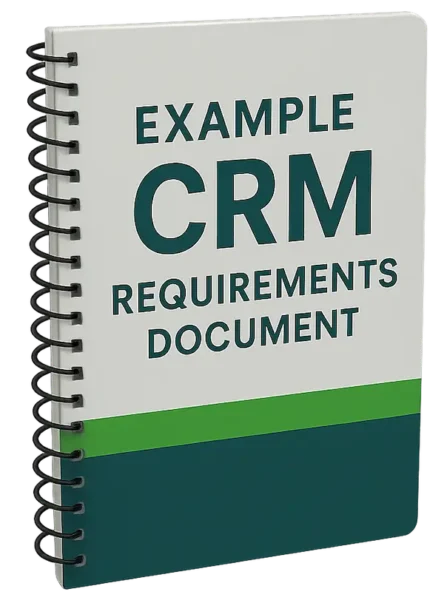If you work for a manufacturing company where management has resisted implementing CRM technology because it either seems too complex to implement or you don’t think it offers a substantial cost-benefit ratio, a popular CRM vendor addresses both of these barriers to CRM adoption.
Salesforce’s Manufacturing Cloud is a set of industry-specific functionality for manufacturers, built on top of the Salesforce platform. More on that below.

Finding a Salesforce for Manufacturing Partner
Editorial Note: We do not earn commissions or margins from the vendors we cover on this website.
Unless you already have an experienced Salesforce specialist on staff or you plan to hire one, you’ll likely need some outside assistance implementing a CRM for manufacturing solution. To assist you with this, we’ve compiled a shortlist of top Salesforce implementation partners for manufacturers.
In no particular order, they are:
Simplus
Simplus is headquartered in Salt Lake City, with additional offices in San Francisco, Chicago, Boston, Atlanta, Australia, and the Philippines. The company specializes in implementing quote-to-cash solutions and has dedicated services for manufacturers.
Mountainpoint
Mountain Point is based in Charlotte, NC. Their Salesforce implementation services are specifically tailored to the manufacturing and industrial sectors. Mountain Point was founded in 2013.
Coastal Cloud
Coastal Cloud is headquartered in Palm Coast, FL. Additional offices in Louisville and Steamboat Springs, CO. In addition to manufacturing, Coastal Cloud specializes in implementing Salesforce solutions for the education, healthcare, high-tech, and real estate industries.
Strategic Growth Inc.
Strategic Growth Inc. is headquartered in Austin. Additional offices are in Dallas, Houston, and Chicago. The company was founded by members of the initial Salesforce Consulting Services team in 2007.
A Specialist Partner For Medical Device Manufacturers
Medical device manufacturers have specialized needs in addition to the many standard requirements common to all manufacturers.
An example is facilitating communications between clinical teams and device end-users using Communities. If your company is a medical device manufacturer, it’s a good idea to look for a Salesforce implementer specializing in the healthcare and life sciences sector.
On this front, a Salesforce implementation partner to consider is J2 Interactive. J2 has focused on healthcare and life sciences technology solutions for over eighteen years. J2 describes some of the ways that implementing Salesforce benefits medical device manufacturers.
Partnership Success
The key term in all this is ‘partner.’ When you choose a Salesforce implementation partner, your relationship needs to be a two-way street. Rarely does CRM success result from sitting back and expecting your implementation partner to do all the work with little or no input from your organization.
To ensure success, maintain an open channel of communication from the project’s inception through to its launch. If everyone stays on the same page, you’re far more likely to hit the ground running when your implementation is complete.
Manufacturing Cloud Highlights
Here is some of the functionality included in Manufacturing Cloud.
Sales Agreements, part of Manufacturing Cloud, allow sales and operations teams to efficiently manage the life cycle of sales agreements in a shared interface. Parameters such as negotiated discounts, volume commitments, start and end dates, and the scheduled frequency for planned orders can all be managed within Salesforce.
The integration of ERP Data using MuleSoft enables account performance to be more easily tracked compared to an environment of disparate systems.
Account-Based Forecasting allows teams to develop more accurate forecasts using a “central source of truth.” Profits and revenue margins are more easily predictable.
Salesforce Field Service has also been incorporated. This helps support teams resolve product issues faster. Additionally, as part of the IoT realm, field equipment can trigger alerts within Salesforce regarding actual or potential problems with the field equipment.
Pre-packaged functionality, such as the above, means that if your company adopts Salesforce, you or a Salesforce implementation partner will not need to spend as much time building out the CRM system to address business requirements that are specific to your industry and business.



